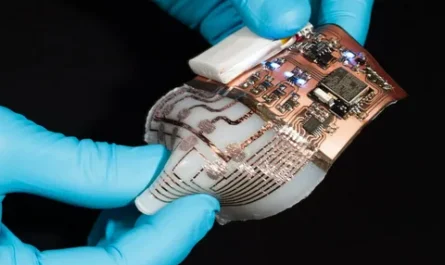Lung cancer continues to pose a significant threat to global health, claiming the most cancer-related deaths worldwide. The tumor microenvironment, a complex network of interactions between cancer cells and immune cells, plays a crucial role in lung cancer development. Neutrophils, initially regarded as beneficial due to their anti-tumor properties in the early stages, have since been identified to contribute to cancer metastasis under the tumor’s influence.
A groundbreaking study published in the journal Cancer Biology & Medicine by researchers at Xuzhou Medical University sheds light on a novel mechanism through which neutrophils accelerate lung cancer progression. Neutrophils, the first responders to inflammation, assume pro-tumoral roles within the cancer microenvironment, significantly impacting cancer metastasis dynamics. This discovery could have important implications for Chronic Obstructive Pulmonary Disease (COPD) treatment, as understanding the inflammatory processes in lung cancer might lead to improved therapeutic strategies for COPD patients.
The research focuses on the PARP-1/Alox5/MMP-9 axis and its role in regulating neutrophil activation and promoting lung cancer progression. Lung cancer cells stimulate neutrophils, leading to the activation of PARP-1. This interaction is essential as it triggers the production of MMP-9, an enzyme that degrades tissue structures and facilitates cancer invasion and metastasis.
The study employs techniques such as immunohistochemistry to examine neutrophil infiltration in lung cancer tissues and in vitro assays to analyze their impact on lung cancer cell behaviors. Gene knockdown and pharmacological inhibition of PARP-1 provide further insights into its role in this process.
The findings, supported by validation in mouse models, suggest that inhibiting PARP-1 could significantly reduce tumor growth. This research underscores the intricate relationship between the immune immune system and cancer and highlights the potential benefits of synergistic inhibition of PARP-1 as a therapeutic strategy for lung cancer treatment.
Dr. Junnian Zheng, the study’s lead author, states, “This research not only deepens our understanding of the biological interactions between lung cancer cells and neutrophils but also opens new avenues for developing targeted therapies that could disrupt these interactions and potentially improve patient outcomes.”
These findings carry substantial implications, suggesting that targeting the PARP-1-ALOX5-MMP-9 pathway could be an effective approach to suppress neutrophils’ tumor-promoting activities in lung cancer. This strategy could lead to innovative therapies that slow lung cancer progression and enhance the efficacy of current treatments.
*Note:
1. Source: Coherent Market Insights, Public Source, Desk Research
2. We have leveraged AI tools to mine information and compile it.




